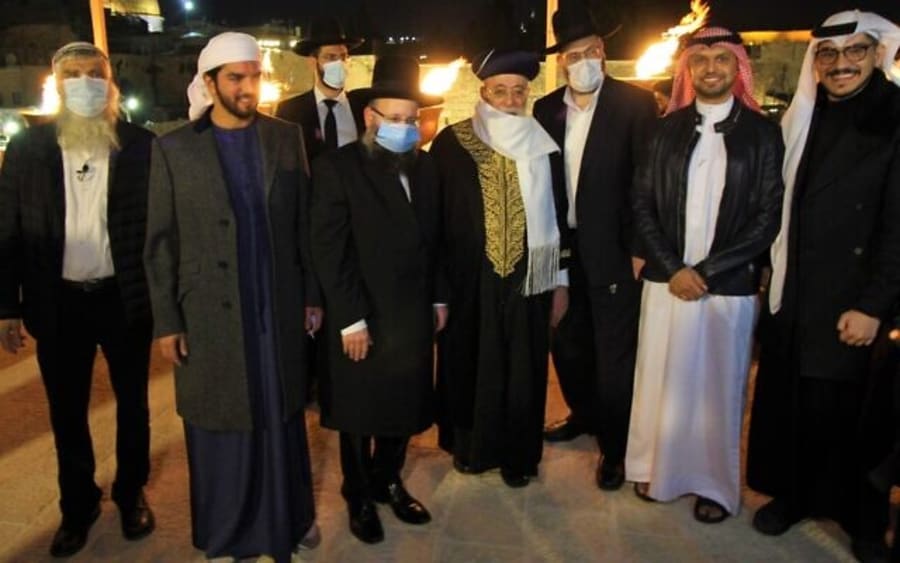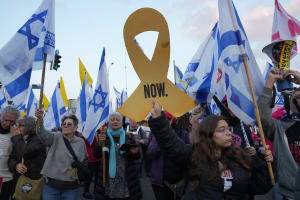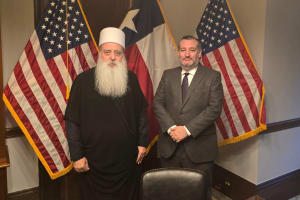Israel prepares to welcome tourism from the Gulf
The potential for Gulf tourism in Israel is great and much welcomed by the pandemic-battered Israeli tourism industry

After the historic peace agreement between Israel and the United Arab Emirates, Israeli tourists and businesses are flocking to Dubai and tens of thousands of Emiratis and Bahrainis are expected to visit Israel, once its skies reopen.
In early December 2020, a delegation consisting of 15 Arab and Jewish mayors from Israel travelled to Dubai for the first time to discuss different areas of cooperation, including mutual tourism. The potential for Gulf tourism in Israel is great and much welcomed by the pandemic-battered Israeli tourism industry.
“The opening of direct flights, and the travel of people between the countries, is an essential step towards building peace between our nations,” Israel’s Minister of Tourism Orit Farkash-Hacohen, told Bahrain’s Minister of Economy and Tourism, Zayed bin Rashid Alzayani, who visited Israel in early December.
Several things will make visitors from the Gulf feel immediately at ease in Israel: Arabic is widely spoken among Arab Israelis and Jews with roots in the Arab world. In addition, Arabic is widely used on street signs, product labels and maps in Israel, making it far easier for Arab Gulf tourists to feel at home.
During his visit, Alzayani was moved by the spirituality of the old city of Jerusalem and expressed his surprise that shop owners welcomed him in Arabic.
“This city has the element of religious tourism for all faiths,” he said. “When I got to the balcony where you can see the Wall and Haram al-Sharif [Temple Mount], you could feel — the air was different,” Alzayani added. “It was a nice feeling. Probably the closest I felt to that was being in Mecca and Medina, as a Muslim.” The Al-Aqsa Mosque on the Temple Mount in Jerusalem’s old city is considered the third holiest site in Sunni Islam.
Jerusalem plans to send a delegation of Arab and Jewish tour operators to the Gulf in preparation for the expected tourism, Deputy Mayor of Jerusalem Fleur Hassan-Nahoum told i24 News.
“We are going to have an influx of a new type of tourism that we have never seen, which is tourism from Muslim countries, from Arab countries,” she said. “Our brand Jerusalem is very strong in the Arab world and especially in the Emirates. People want to come to Jerusalem.”
The deputy mayor stressed that she felt optimistic that the Jewish state is well prepared for the tourists from the Gulf tourists.
“I think that Israelis are very hospitable people and we are warm people as well,” she said.
In addition, the Israel Ministry of Tourism has invited more than 150 Emirati tour operators and representatives from tourism companies in Israel for its inaugural digital tourism forum on Dec. 16. The aim of the forum is to highlight the new developments between the two nations and to showcase the tourism offerings of Israel to the travel trade of UAE.
Officials from the Tourism Ministry will introduce the Emirati market to Israel as a tourism destination, alongside representatives from Jerusalem and Tel Aviv. Following the forum, Israel’s tourism minister will lead an exclusive press briefing that will focus on the efforts between the two countries to promote tourism, and to discuss the strategy of the Ministry of Tourism to attract tourists from the UAE.
Despite the warmth and optimism engendered by the new peace agreements — Dubai’s iconic Burj Khalifa skyscraper lit up in honor of the first Hanukkah celebration in the Gulf, for instance — there are substantial political and cultural differences between Israel and the Gulf States that should not be underestimated. The Tourism Ministry in Israel, therefore, has warned against discussing “sensitive topics” with UAE citizens, such as the treatment of foreign workers in UAE, the royal families of the Gulf States and promotion of democracy.

The All Israel News Staff is a team of journalists in Israel.













